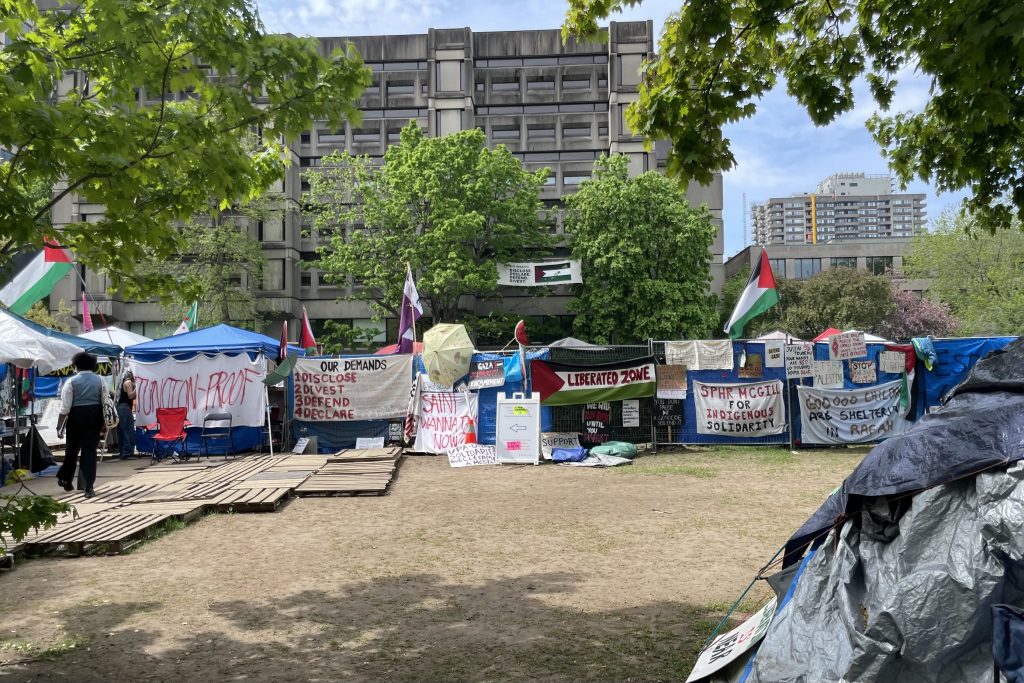Timeline of the deadly 2017 Quebec City mosque shooting
Posted January 29, 2022 8:00 am.
Last Updated January 29, 2022 6:38 pm.
This year marks the fifth anniversary of the Quebec City mosque shooting, an attack that left six Muslim men dead, 19 others injured, and an entire country scarred by hate and violence. The attack was widely condemned as an act of terrorism, though no terrorism-related charges were laid.
Here is a timeline of events that begins with the night of the shooting.
JANUARY 29, 2017
Just before 8 p.m. on a cold winter night, 27-year-old Alexandre Bissonnette entered the Islamic Cultural Centre, a mosque in Quebec City’s Sainte-Foy district. Inside, evening prayers were winding down and dozens of worshippers were gathering their things to go home.
Bissonnette entered the mosque carrying a semi-automatic rifle and a 9mm Glock pistol and opened fire for about two minutes, emptying all his bullets.
By the time the carnage was over, six people were dead, and 19 others seriously injured, making it one of the deadliest mass shootings in Canadian history.
The six men who lost their lives were:
- Ibrahima Barry, 39, a Quebec government IT worker
- Mamadou Tanou Barry, 42, an accounting technician
- Khaled Belkacemi, 60, a professor at Universite de Laval
- Aboubaker Thabti, 44, a pharmacy technician
- Abdelkrim Hassane, 41, a computer analyst
- Azzedine Soufiane, 57, a grocery store owner. Soufiane died trying to stop Bissonnette’s shooting spree and was hailed as a hero.
All the dead were husbands and fathers. Seventeen children lost a parent that night.
Bissonnette fled the scene but later called 911 to say he wanted to cooperate with police. He was arrested soon afterward. Police initially arrested two suspects, but it would soon became clear the sole suspect was Bissonnette.
During the police interrogation, Bissonnette revealed – and a search on his internet browser history confirmed – that his fear of refugees and immigrants had been fuelled by Islamophobic and far-right anti-immigrant literature online. He told police officers that he was motivated by Justin Trudeau’s response to Donald Trump’s travel ban, and that he was worried refugees would become a threat to his own family.
WATCH: CityNews report from Jan. 31, 2017
JANUARY 30, 2017
Public vigils and gatherings were held across Quebec and Canada as the country mourned the tragedy and showed support with the attack victims, their families and the Muslim community.
Quebec City Mayor Régis Labeaume, Quebec Premier Philippe Couillard and Canadian Prime Minister Justin Trudeau all denounced the shooting as a “cowardly terrorist attack.”
FEBRUARY 1-2, 2017
Thousands showed up for the funeral services of Hassane, Belkacemi and Aboubaker in Montreal, and Tanou Barry, Barry and Soufiane in Quebec City. Prime Minister Trudeau paid his respects at both funerals.
OCTOBER 2, 2017
The Crown was granted permission to proceed directly to trial without a preliminary inquiry. They also added a sixth charge of attempted murder with a restricted weapon. The Crown explained the new charge involved people, including four children, who were in close proximity when the attack occurred. The Crown also announced there wouldn’t be any terrorism-related charges.
MARCH 28, 2018
Bissonnette initially pleaded not guilty, but five hours later reversed his plea. He asked for forgiveness and pleaded guilty to all six counts of first-degree murder and six counts of attempted murder with a restricted firearm. The judge accepted the guilty pleas and people burst out sobbing in the courtroom.
FEBRUARY 8, 2019
Bissonnette was sentenced to life in prison with no possibility of parole for 40 years. The six-hour hearing was attended by both families of the victims and survivors of the shooting.
MARCH 8, 2019
Bissonnette’s legal team decided to appeal the sentence, claiming it was too harsh. Quebec Superior Court Justice Francois Huot’s sentence was “illegal” and “manifestly unreasonable,” the defence lawyers wrote. The sentence, however, was well under the six consecutive life sentences – 150 years before being eligible for parole – sought by the Crown.
MARCH 15, 2019
Forty-nine Muslims were killed in mass shootings at two mosques in Christchurch, New Zealand. Bissonnette’s name, along with those of several other mass murderers and far-right white supremacists, was written on guns used in the attack.
NOVEMBER 26, 2020
Quebec’s Court of Appeal found 40 years without parole to be unconstitutionally cruel and unusual punishment. The sentence was adjusted to life in prison with no possibility of parole for 25 years.
Quebec prosecutors sought to reinstate the original sentence, however, with an appeal to the Supreme Court of Canada, which was granted. The initial hearing is scheduled for March 24, 2022.
DECEMBER 1, 2020
The City of Quebec, in partnership with the Canadian and Quebec governments, unveiled a memorial entitled Vivre ensemble (Living Together) to honour the victims.
JANUARY 29, 2021
On the fourth anniversary of the attack, Prime Minister Trudeau announced that the day of the attack would from now on be commemorated as The National Day of Remembrance of the Quebec Mosque Attack and of Action Against Islamophobia.



